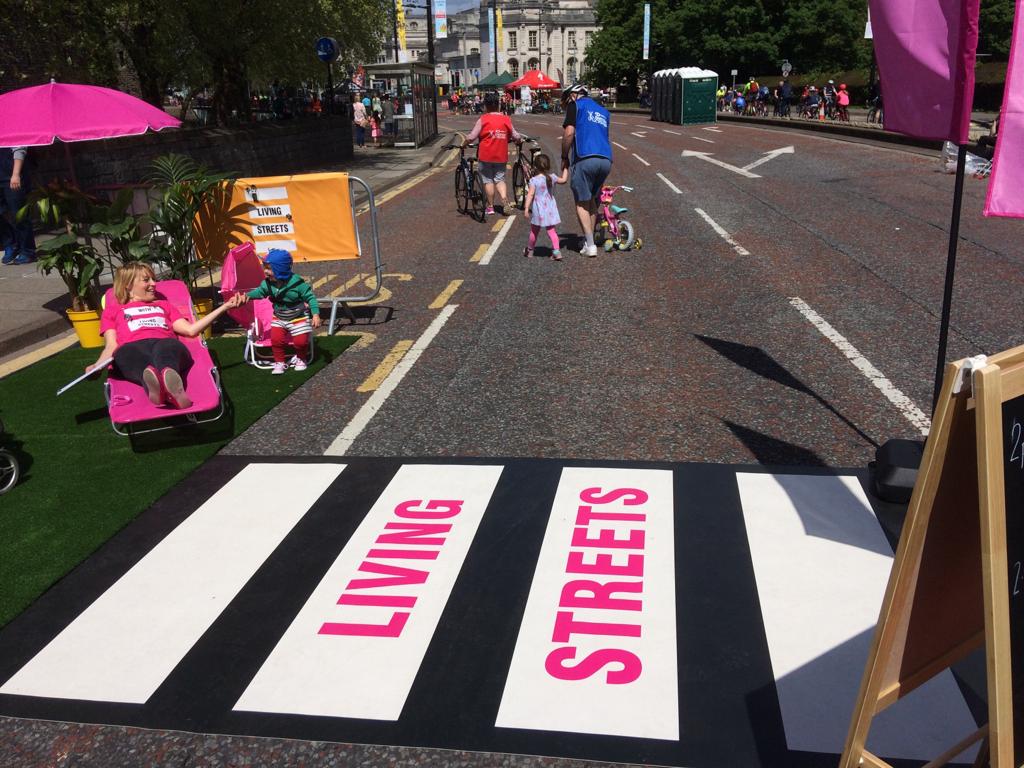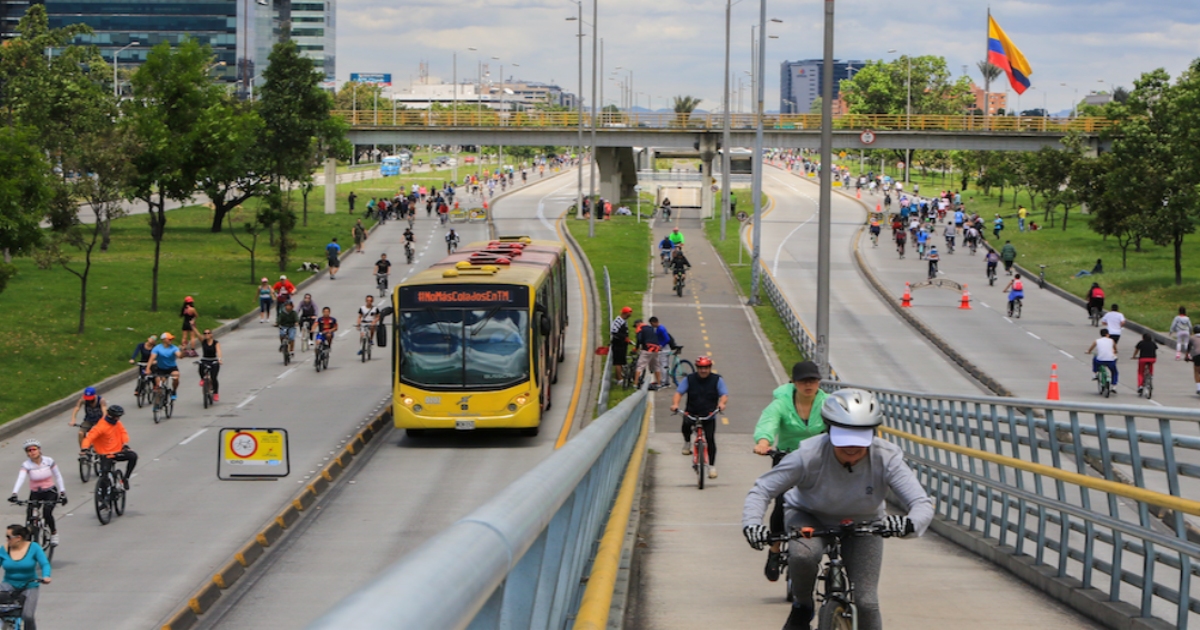Prioritising people by reimagining our streets
Imagine a street where you didn't need to watch your back for fast moving vehicles and you had the whole expanse of the road to enjoy with your friends, family and neighbours.
World Car Free Day, the annual event on 22 September, provides just that - and our Engagement Manager, Aisha Hannibal, loves it.
We talk about creating attractive, healthy, accessible streets but it is hard to see the big vision when our daily lives are filled with the frustration of getting around the city on foot, in a wheelchair, with a pushchair or by bike. Car Free days enable disabled people and those that rely on private vehicles for health reasons, to enjoy clearer streets. It also can support the use of public transport by opening bus lanes to prioritise connective journeys.


When I was the manager of an Education Centre I was hosting a community film course. While researching about transformative cities I stumbled across some footage of the weekly car free event in Bogata, Colombia.
I was blown away seeing an empty flyover dual-carriage way transformed into a public space with couples ambling along, people setting their own pace and every set of wheels from rollers blades to tricycles.
By removing cars it revealed the city beneath and the people who live in it, work in it and make it thrive. Bogota's Cicliovia found its success in introducing weekly city-wide car free events.
In Jakarta, Indonesia, they have responded to issues such as high pollution and low air quality by closing many streets every week.
New York's Summer Streets campaign replaced cars with fake grass and loungers with record numbers of people flooding in for the novelty of lying in the road.
In Paris, France they host an annual car-free day which closes the entire city to cars to prioritise people. There are events for families, groups and communities to join while they enjoy the quiet, pollution free streets for walking, wheeling, skating and cycling.
Car Free Day reveals the potential of our cities and provides an opportunity to pilot people-centred planning infrastructure and different models of managing public space. This includes freeing up roads for people who need to use private vehicles for health or mobility reasons.
Local Groups Involvement in World Car Free Day 2023
Dinas Powys, Vale of Glamorgan group met at the library for an interactive walk around the town to chat about what would make it easier to leave the car at home for local trips.
London Living Streets Group planned a whole weekend of action celebrating the capital’s parklets. They joined iBike London for a community parklet tour. They also created a Pop-Up Parklet Day to inspire others to get creative in their areas.
Biggleswade Living Streets Group in Bedfordshire organised social events, designed to showcase some of the town’s green walking and cycling routes.
The Waterlink Way is a walking and cycling path following south London’s streams from South Norwood Country Park up to the Thames at Greenwich. Croydon Living Streets Group met to clean up part of the London stream to show support for the work charities like The Rivers Trust and Surfers Against Sewage.

FAIRER AND MORE EQUITABLE CITIES FOR DISABLED PEOPLE
ACCESSIBLE STREETS
Inaccessible streets, crossings and public spaces are a daily obstacle for people with mobility issues and disabilities.
Not only is this frustrating but it prevents people from accessing the places they want to go, the work they want to do and the contribution they can make.
For those that feel isolated, anxious or vulnerable, busy streets can be noisy, over-crowded and intimidating.
GROWING AND CHANGING STREETS FOR THE NEEDS OF OUR COMMUNITY
ROADS REIMAGINED
As part of Car Free Day, councils are building on positive initiatives shown around the world.
In the London Borough of Hackney parking bays were transformed from places for your car to 'parklets' with planters and chairs to reflect the needs of the majority of urban dwellers that don't own cars.
Street parties have provided a way for neighbours to celebrate special occasions but can occur any day of the week with permission to provide places to play, eat and transform the mundane to the people's domain.
Beyond the opportunities that Car Free Day provides to celebrate our streets for people, Playing Out puts the focus on children's 'right to play' and to do it outside their front door.
Car free events provide a chance for people to experience their streets when provision is made that considers accessibility. This forms part of a wider conversation about what is needed in our cities to remove obstacles that limit movement.
TAKE ACTION WHERE YOU LIVE
Want to make your streets more walkable for everyone? Our Local Groups help create build healthier and more accessible places to live, work and play; one street, community, town and city at a time.
Find out where your nearest group is - or set one up.

About the author
Living Streets